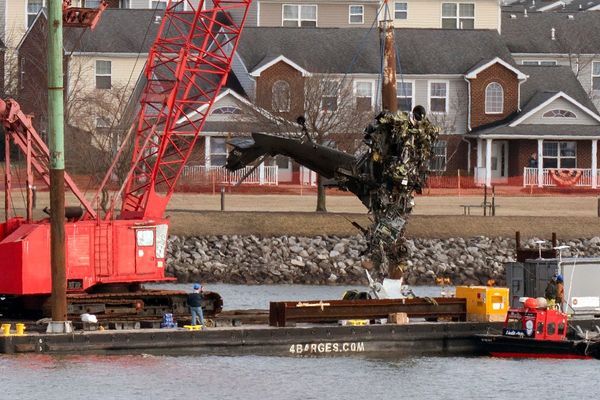FORT LAUDERDALE, Fla. — Vice President Kamala Harris flew to South Florida on Monday to talk up a $1 billion Biden administration program to help deal with the growing intensity of hurricanes, wildfires, extreme heat and other disasters that threaten communities nationwide.
Her arrival came hours after the White House announced a national funding plan that would benefit all 50 states, as well as Washington, D.C., and three territories including Puerto Rico.
At the same time, a new funding bill designed to mitigate climate change remained in limbo in Washington — it received surprise support from U.S. Sen. Joe Manchin, D-W.Va., but needs additional agreement from Democratic holdout Sen. Kyrsten Sinema of Arizona.
Harris was scheduled to be joined at a Florida International University climate-related event by Homeland Security Secretary Alejandro Mayorkas, Federal Emergency Management Agency Administrator Deanne Criswell and National Oceanic and Atmospheric Administration Administrator Richard Spinrad.
The vice president is visiting the National Hurricane Center as well as the neighboring main campus of FIU, where she is expected to discuss extreme weather events nationally, such as the deadly flooding in Kentucky and Missouri and the protracted wildfires in California. It was not immediately clear how South Florida became the program’s launching point. An FIU spokeswoman did not have any immediate information.
The administration’s plan, dubbed the Building Resilient Infrastructure and Communities Program, will receive twice the funds it did in 2021.
“President Joe Biden and Vice President Kamala Harris have been clear that climate change is a crisis,” the White House said in a statement.
“The Biden-Harris Administration is taking action to make communities across America more resilient to climate change, especially as millions of Americans live under heat advisories ... (and) wildfires threaten communities big and small,” the statement added.
The federal money, among other things, would upgrade responses to wildfires, make aid to underserved communities a priority and curb losses to infrastructure.
The administration is also coordinating federal efforts on flood resilience and ensuring that federal investments include safety standards for flooding and sea-level rise.
Last year, for example, the South Florida Water Management District received $50 million for a flood mitigation program in Miami-Dade County, according to the FEMA website. The district, the largest of five in the state, covers 16 counties from Orlando to the Florida Keys and serves 9 million people.
The project, the only one last year to receive funding in South Florida, is located in a region where real estate development along the waterfront “has created a high-risk flood zone for communities,” FEMA says in its project description.
The project involves the installation of “a living shoreline” to reduce erosion, elevate canal banks, build a levee for storm surge protection, and replace a pump station “that will convey flood waters to tide when downstream water elevations are too high to allow gravity flow.”
“Combined with sea level rise, these problems are only going to increase. Rapid urbanization since the pandemic has put pressure on the current systems, making new repairs to existing structures needed for optimization,” according to the description.
“The project will maximize the risk reduction benefits and co-benefits of natural and nature-based solutions, such as short- and long-term environmental, economic, and social advantages that improve a community’s quality of life and make it more attractive to new residents and businesses,” the description says. “Extensive land development and population increases within the area have already exceeded the original design assumptions of structures to mitigate for flooding. Significant changes in climate conditions and sea level rise have also impacted the area and are limiting flood protection operations.”
Over the weekend, President Joe Biden’s surprise deal with Manchin to spend $369 billion over 10 years to offset climate change came under attack from conservatives and others who oppose it.
The administration must now persuade Sinema to back the spending as part of a broader law called the Inflation Reduction Act, which is valued at $739 billion. The bill must garner all 50 Democratic votes in the Senate, as Republicans are unified in their opposition.
As of midday Monday, the senator was undecided, according to national news reports.
“Sen. Sinema does not have comment as she’s reviewing the bill text and will need to see what comes out of the parliamentarian process,” a spokesperson for the senator told Fox News Digital.
———







